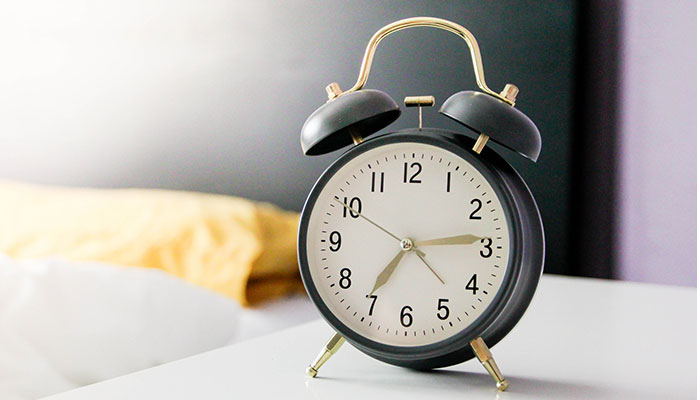Returning to work after a break can be energising, but it might also leave us feeling flat, unmotivated and dissatisfied. So what can we do to chase the blues away and rediscover our mojo?

The tips included here are simple but effective strategies that won't just help you transition back to work after a break. They are also things you can do throughout the year to help you to stay grounded.
Reset your expectations
Remind yourself that breaks are great, but work has important benefits. Chief among these may appear to be financial remuneration, but but many people also derive satisfaction from the contributions they make in the workplace and enjoy social interactions with co-workers. Work can be highly challenging but is often also satisfying and stimulating.
A great technique for helping to get your head back into the game is to quickly review your expectations about work.
What do you expect will happen on your return? What are the key challenges you are likely to face? These questions will help you zero in on areas that you might want to tweak or change.
For example, were you over-committed before your break? If so, what can you do to set yourself up differently? What people or resources can you enlist for support?
Plan simple goals
What do you need to achieve on your first day, or in your first week? Set realistic but simple goals and schedule sufficient time to achieve them.
Try to pace your return and your tasks. Yes, tasks need to be done, but probably not on the first day or in the first week. And, importantly, what will you do outside of work during your first week to reward yourself, and keep yourself grounded?

You might schedule an evening trip to the beach, a walk, or an hour or two to read or enjoy a hobby or pastime.
Planning doesn't take long, but it is a great way to give you a sense of control as you return to work, and a sense of satisfaction as you achieve your goals.
Healthy routines
One of the benefits of having a break is getting into healthier routines. Sure, you may have over-indulged, but you probably also got more sleep, more fresh air, and had more time doing things that are fun. You also probably listened to less news and stopped monitoring the (mainly negative) 24-hour news cycle.
As you plan your return to work, think about the things you did regularly during your break that were healthy, and plan how you can continue these in coming months.
It might be that you commit to watching less news, have less screen/scrolling time, go to bed earlier, and share an evening meal with loved ones. Maintaining these routines or rituals is not only good for you but will help keep you grounded as you transition back to work.
Plan a future break
One of the best ways to maintain your mojo is to stay grounded and energised. Just as you need regular sleep, you also need regular breaks, and sometimes weekends may not be enough.

The benefits of regular breaks aren't just the 'break': there are also immense benefits in planning your time off.
Giving yourself something to look forward to and to be excited about is itself a great feeling, but planning breaks also helps you to keep perspective, particularly if you have a demanding role.
The breaks don't even have to be vacations. They might be staycations, where you enjoy your home or catch up on the home and life admin that you might not have time or energy to do when juggling paid employment and other roles.
If possible, try to spread your leave out over the year. We often save up our all of leave for one big trip, but going for 12 months without a break is exhausting and can contribute to burn-out.
Get outside
Go for a hike, jog, swim or cycle, or take a walk before work or on your lunchbreak.
Exercise and physical movement are great ways to manage stress and look after your mental and physical health, but even if you're not working up a sweat, spending time in nature has proven benefits of its own.

Green and blue spaces such as forests, parks and beaches are relaxing. They focus our attention on our surroundings, ground us in the moment and help to take our attention away from things that might be worrying us.
The sounds of nature, like waves or birdsong, can help us regulate our breathing and even lower blood pressure, all of which contributes to being more relaxed. Again, creating habits involving regularly getting outside is a wonderful way of staying grounded.
Follow your passions
Holidays give us the time to rediscover our passions and interests.
What do you love to do, but often don't do when working? What makes you happy and satisfied and content? This doesn't have to be anything that you share with others, it might be your own thing. How can you keep doing it after resuming work?
Regularly doing things we love is strongly linked to good mental health, and the good news is that they don't have to be big things.
Even simple actions like regularly listening to your favourite music, cleaning and clearing clutter, reading, writing, or playing sport – or whatever it is that we enjoy – makes us feel happier and more content.
Everyone in the family deserves to have time for themselves, so make sure to prioritise your own passions just as you would sport or dance lessons for one of the kids.

Professor Nick Titov, pictured, is a Professor of Psychology at Macquarie University and Executive Director of MindSpot, Macquarie University's free digital mental health service.
If you are interested in simple ways to promote and maintain your mental wellbeing, learn more about MindSpot's Big 5.






